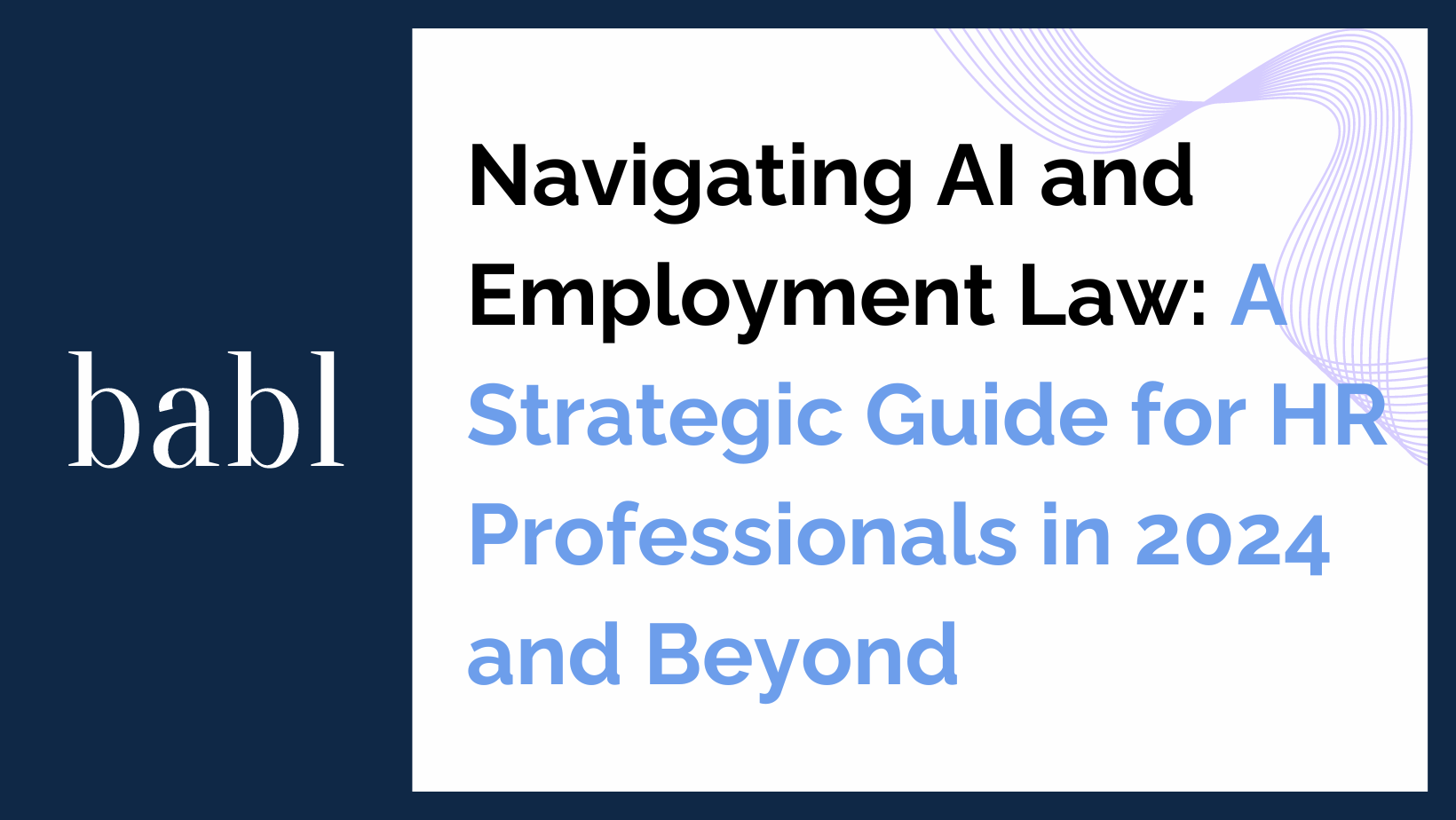The integration of Artificial Intelligence (AI) in human resources (HR) has introduced not only technological advancements but also legal challenges. This blog provides HR professionals with a guide on navigating the legal landscape surrounding the use of AI in hiring. It examines how different jurisdictions are regulating these technologies to ensure compliance and protect candidates’ rights.
The Rise of AI in Recruitment: Opportunities and Legal Challenges
AI’s capabilities in screening resumes, predicting candidate success, and even conducting initial interviews have revolutionized traditional hiring practices. These tools offer the promise of efficiency and precision but also raise significant concerns regarding privacy, discrimination, and transparency. As AI becomes more prevalent in HR, understanding the legal implications and ensuring adherence to laws is crucial.
Understanding the Global Regulatory Framework for AI in Hiring
The regulatory framework for AI in employment varies significantly across different jurisdictions, reflecting diverse priorities in balancing innovation with workers’ rights. For instance:
- European Union (EU): The EU is at the forefront with comprehensive regulations like the General Data Protection Regulation (GDPR), which impacts AI by enforcing strict data privacy and security measures. The EU AI Act categorizes AI systems used in employment contexts as high-risk, requiring rigorous transparency, accuracy, and oversight measures.
- United States: In the U.S., there is no federal law directly regulating AI in hiring, but existing laws like the Civil Rights Act and the Americans with Disabilities Act impose constraints to prevent discriminatory practices. Some states and cities, like New York City’s Local Law 144, have started to enact specific regulations mandating bias audits for automated employment decision tools (AEDTs).
- Asia-Pacific: Countries like Singapore and Australia are implementing guidelines and frameworks that encourage ethical AI use without imposing heavy regulatory burdens. These typically focus on transparency, fairness, and accountability.
Key Compliance Challenges for HR Professionals
Adopting AI in HR processes involves navigating a complex web of regulations that can vary not only by country but also by state or province. Compliance challenges include:
- Bias and Discrimination: AI systems can inadvertently perpetuate existing biases found in training data, leading to discriminatory outcomes that violate anti-discrimination laws.
- Data Privacy: AI tools often process vast amounts of personal data. Ensuring this data is handled in compliance with data protection laws like the GDPR in Europe or the CCPA in California is essential.
- Transparency and Accountability: There is a growing demand for AI systems to be transparent and their decisions explainable, especially when they affect candidate selection. This is crucial not only for compliance but for maintaining candidate trust.
Best Practices for HR Compliance in the AI Era
To navigate these legal complexities, HR professionals should adopt several best practices:
- Continuous Education: Keeping up-to-date with the latest legal developments related to AI in your jurisdiction is crucial. This may involve regular training and consultations with legal experts.
- Regular Bias Audits: Implementing regular audits of AI hiring tools can help identify and mitigate any inadvertent biases, ensuring compliance with anti-discrimination laws.
- Robust Data Privacy Protocols: Given the sensitivity of personal data processed during hiring, strengthening data privacy practices in accordance with applicable laws is essential.
- Transparent and Accountable AI Operations: Opt for AI solutions that offer transparency in their operations and decision-making processes. Being able to explain how a particular AI tool made a decision can be crucial in the event of legal scrutiny.
- Ethical AI Frameworks: Creating an internal framework or set of guidelines for ethical AI use can help align AI practices with broader corporate values and legal requirements.
Looking Ahead: Trends and Predictions in AI Regulation
As technology evolves, so too does the legal landscape. Several trends are likely to shape the future of AI in employment law:
- Stricter Regulations: More countries are likely to introduce specific regulations that address the use of AI in hiring, with a focus on fairness, accountability, and transparency.
- Ethical AI Adoption: Beyond compliance, there will be an increased focus on the ethical implications of AI in HR.
- Harmonization of International Standards: Efforts to standardize AI regulations internationally could gain traction, simplifying compliance for multinational corporations.
Conclusion
Navigating the intersection of AI and employment law requires a proactive approach from HR professionals. By understanding specific legal requirements, conducting audits, and fostering transparency and ethics, organizations can leverage AI tools. They can also protect candidates’ rights and comply with the law. As AI continues to transform HR, staying ahead will be key to harnessing its full potential responsibly.
Need Help?
If you want to have a competitive edge when it comes to AI, reach out to BABL AI. Their team of Audit Experts can provide valuable insights on implementing AI.





